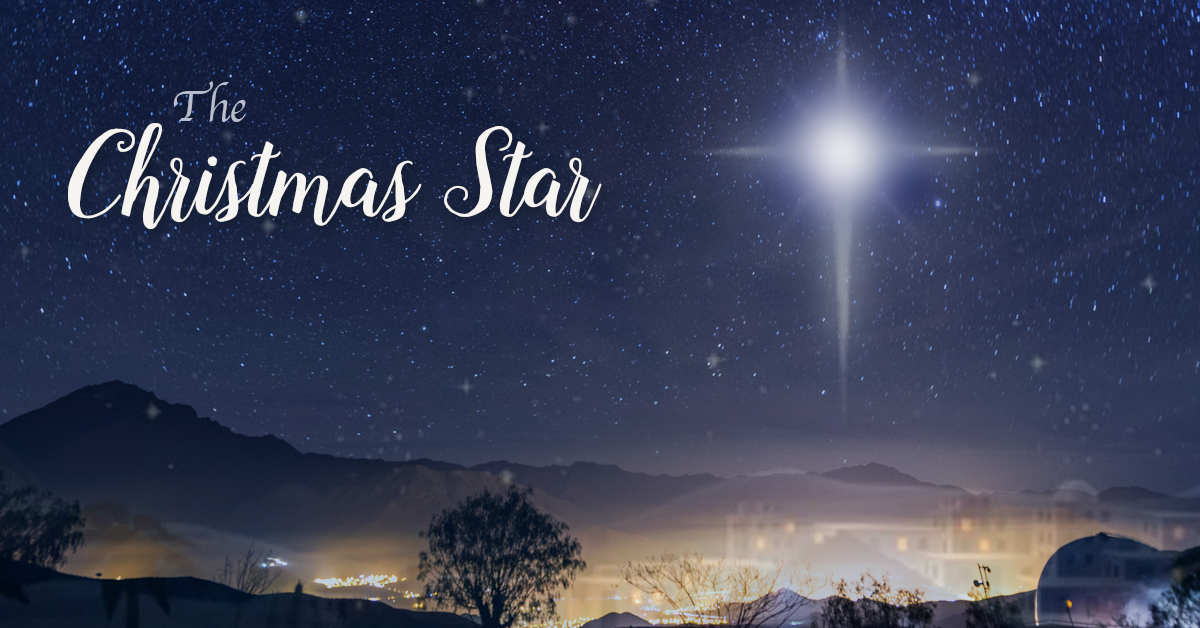The Christmas Star
Our grandchildren usually decorate our tree during Thanksgiving, but we didn’t get to share the holiday with them this year.
There was just a moment when my husband and I talked about not going downstairs and bringing all the Christmas decorations up.

However, that moment disappeared when I heard my favorite Christmas song; “I Heard the Bells on Christmas Day,”
Henry Wadsworth Longfellow, the most famous poet of the 19th century, was inspired to write the poem, we know now, as the Christmas carol, on Christmas day in 1863.
Two years earlier, he lost his wife of 18 years. She had been sealing envelopes with hot wax when a flame caught her clothes on fire.
Henry rushed to her and tried to smother the flames, but it was too late; by the time the fire was out. She was burned beyond recovery and died the next day. He was also severely burned and too sick to attend her funeral.
After her death, Longfellow became very depressed. He grew a beard to hide the scars from the fire on his face and spent his time translating other poets work.
When Christmas day came around the next year, he wrote in his journal: “A merry Christmas’ say the children, but that is no more for me.”
In 1863 the American Civil war began. Against his father’s wishes, his oldest son, Charles, ran off and joined the war and later sent his father a letter, “I feel it to be my first duty to do what I can for my country and I would willingly lay down my life for it if it would be of any good. God Bless you all.”
In the coming year, soldiers risked being killed and felt many hardships, including hunger, bad weather, and sickness.
Longfellow brought his son home twice because he came down with the fever, and later because he was injured in battle. While trying to nurse his son back to health, he heard the church bells.
He said he found in them a message that peace would come again to the troubled nation. They inspired him to write the poem, Christmas Bells. Several verses refer to the war, but the “peace on earth, goodwill to men” came from Luke, 2:14. This happened when angels appeared to the shepherds in the fields to tell them about the birth of Jesus.
In the year when Jesus was born, there was violence, chaos, political and social unrest, but angels appeared to the shepherds and told them where to find Jesus.
The star of Bethlehem, which was the meeting of Jupiter, Saturn, and Mars, led the three wise men (Magi) to the manger, where Jesus was, and they worshipped Him.
You may already know the story of “I’ve Heard the Bells on Christmas Day,” Longfellow said the poem was a testament to the resilience of the human spirit.
We all need to be reminded that whatever despair we have felt this year, the celebration of the birth of Christ, is our hope and our light in the darkness.
And according to NASA (National Aeronautics and Space Administration), we may see the Christmas star again on December 21st during the Winter Solstice, which is the longest night of the year in the northern hemisphere.
Jupiter and Saturn will meet again, giving us the Christmas Star we need to remind us that there is light in the darkest times.
I heard the bells on Christmas Day
Their old, familiar carols play,
and wild and sweet
The words repeat
Of peace on earth, good-will to men!
Till ringing, singing on its way,
The world revolved from night to-day,
A voice, a chime,
A chant sublime
Of peace on earth, good-will to men!
And in despair I bowed my head;
“There is no peace on earth,” I said;
“For hate is strong,
And mocks the song
Of peace on earth, good-will to men!”
Then pealed the bells more loud and deep:
“God is not dead, nor doth He sleep;
The Wrong shall fail,
The Right prevail,
With peace on earth, good-will to men.”
The post The Christmas Star appeared first on Morning Coffee Beans.
from Morning Coffee Beans https://ift.tt/38fgBJg
via IFTTT



Comments
Post a Comment